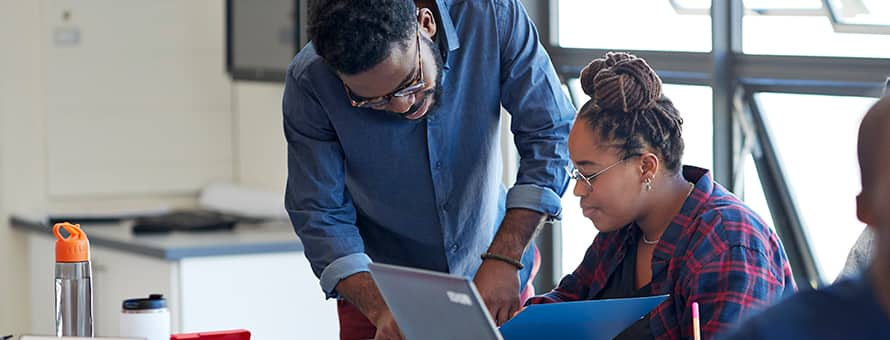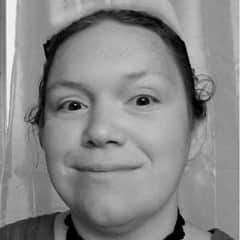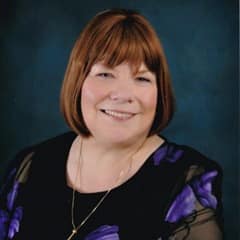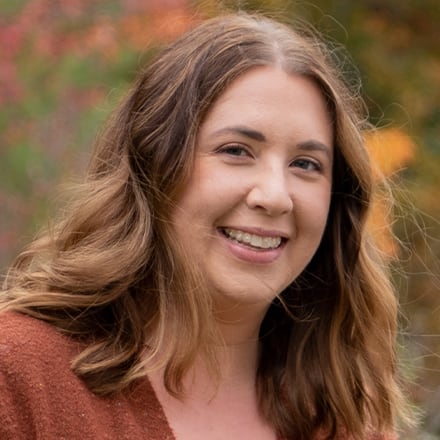10 Qualities of a Good Teacher

Know before you read
At SNHU, we want to make sure you have the information you need to make decisions about your education and your future—no matter where you choose to go to school. That's why our informational articles may reference careers for which we do not offer academic programs, along with salary data for those careers. Cited projections do not guarantee actual salary or job growth.
A good teacher can make a world of difference in a student's life, impacting everything from their classroom learning to their long-term success. If you're considering a career in education — or looking to boost it with a Master of Education (MEd) — it's important to explore the qualities of a good teacher.
Research from the Economic Policy Institute shows that good teachers are the single most important factor that contributes to student achievement in the classroom, more important than facilities, school resources and even school leadership.
So, What Makes a Good Teacher?
Southern New Hampshire University (SNHU) graduates and education faculty shared their thoughts on the qualities that make effective teachers stand out.
 Good Teachers Are Strong Communicators
Good Teachers Are Strong Communicators

When it comes to effective teaching, strong communication skills are a must, said Dr. Daniel Tanguay, an academic dean of education at SNHU.
Tanguay got his start as a high school math teacher and said that many students came to his class feeling afraid of math, discouraged by their prior experiences and too overwhelmed to approach the subject positively.
By communicating with students at the beginning of the year about how math applies to their favorite hobbies, sports and future careers, Tanguay said his students were able to approach the subject in a more enjoyable way that better supported their learning.
“I’m a firm believer in communication in all forms,” he said. “As a leader, communication is a tool for overcoming fear.”
 Good Teachers Listen Well
Good Teachers Listen Well

Great communication doesn't stop when the teacher is done talking. Listening well is one of the most important skills needed to be a teacher.
“Teachers that are skilled in listening and observing often pick up on what isn’t being said, such as any anxieties a student may have," said Kristine Ducote '21 '24G, a peer mentor at SNHU. "(Teachers) can then help the student build their skills and confidence levels."
Taking the time to discover and leverage a student's learning style and their strengths is important, too.
"Asking them to pull on their many talents and past successes while adapting them to an educational environment and good study habits are crucial for student persistence and positive outcomes," Ducote said. She's found this approach to be beneficial to her work as a peer mentor and former tutor at SNHU.
Ducote has also spent a lot of time as a student herself. She holds a bachelor's in criminal justice and master's in clinical mental health counseling from SNHU. (SNHU is not currently enrolling new students in the graduate counseling program.)
 Good Teachers Focus on Collaboration
Good Teachers Focus on Collaboration
Working in education means you’re never truly working alone. From paraprofessionals and teaching assistants to other classroom teachers and school leaders, working as a teacher often means working effectively in a group. It's also important to keep an open mind and learn from other educators.
The key to success in this kind of environment, Tanguay said, is the ability to collaborate.
"You really need to be able to fill various roles in order to collaborate effectively," he said. "If you already have someone on your team who is going to be the one to critique all of the suggestions made, then you don't need to join in on that. Instead, maybe you need to be the person who is going to come up with creative ideas. You need to have that flexibility."
 Good Teachers Are Adaptable
Good Teachers Are Adaptable

Effective teachers need to be able to work in a constantly evolving environment and adjust their teaching methods based on the age of their students, the resources available and changing curriculum, practices and requirements.
As a former high school teacher and SNHU professor of education, Dr. Audrey Rogers said she’s seen tremendous changes in the education field throughout her career, particularly with the rise in access to the internet, computers and other technology.
What is teaching going to look like in another 30 years? The only thing certain is change, according to Rogers, who now oversees graduate education programs at SNHU.
The ability to adapt is one of the most beneficial skills she said she's used while working in education — and it's certainly one that came in handy during the COVID-19 pandemic.
"(The pandemic) pushed us to rethink our teaching methods, embrace new technologies and find creative ways to engage with students," she said. "That experience underscored the importance of being flexible, open to change and willing to step outside of our comfort zones."
Adaptability is also one of the key skills needed to be a teacher who may be educating students of varying grade levels or different learning styles, Tanguay said.
“You have to be able to adapt based upon your audience,” he said.
 Good Teachers Are Engaging
Good Teachers Are Engaging
Being able to engage students with humor, creative lessons and a strong classroom presence is an important part of what makes someone a good teacher, Tanguay said.
“A good teacher will perform for their students to keep them going," he said. "It’s not about sitting back and just lecturing.”
What an engaging teacher looks like will depend on grade level and subject matter, Tanguay said. In kindergarten, an engaging teacher might be one who gets down on the floor to do activities with their students on their level. In high school, an engaging teacher may be one who thinks outside the box, adds humor to their lessons and finds creative ways to bring learning into the real world.
 Good Teachers Show Empathy
Good Teachers Show Empathy
Another key to engaging students and improving their learning is to treat each student as an individual, by being empathetic and understanding to what may be going on in their lives, according to Tanguay.
“We need to take a moment to ... think about what could be going on in this student’s life,” he said. “It’s so important to be observant, attentive, empathetic and always have a positive attitude.”
Investing the time into understanding each student and their strengths can make a big difference in their learning. "This may take a little extra time and effort, posing additional challenges given the instructor/student ratio and work schedule," Ducote said. "However, a little extra can go a long way towards student retention and meeting educational goals."
 Good Teachers Have Patience
Good Teachers Have Patience
No matter what grade level you're teaching, your patience will be tested while working as an educator.
Whether you’re managing classroom behavior, working with colleagues with different views, or communicating student issues or progress with parents, patience is one of the most important skills to practice as a teacher.
“More often than not, you actually have to have more patience with the parents than you do with the students,” Tanguay said. “Parents are coming in with their perceptions of what happened to them when they were students or previous experiences that may have been detrimental to their child ... You have to be patient and understanding of them.”
 Good Teachers Value Real-World Learning
Good Teachers Value Real-World Learning
Teachers who bring classroom learnings into the real world are often some of the most engaging. But it’s important for teachers to bring their own learning as educators into the real world, too.
One of the best preparations for effective teaching is to ensure that education students get plenty of classroom experience early on in their degree programs, Rogers said.
For SNHU's on-campus education majors, this preparation includes embedded coursework that begins in a student's freshmen year. They spend time at a local school once a week to collaborate with teacher partners and apply their learning to the classroom. A year-long student teaching experience is also a powerful way to ensure soon-to-be teachers have the time to hone their teaching skills, Rogers said.
"Our students have that benefit of seeing the practical application (of) what they're learning in the moment they're learning it," she said.
Find Your Program
 Good Teachers Share Best Practices
Good Teachers Share Best Practices
A willingness to share knowledge and experiences with others is one of the most important qualities of a good teacher, Rogers said.
Education is a hands-on field and often requires experimentation within the classroom to discover which methods of communicating with students work best. Part of being an effective teacher is sharing your findings and best practices with others in the field, Rogers said.
“I always challenge my students to think, ‘What is your contribution?’” she said. For instance, would you share your ideas on social media about how technology can be integrated in the classroom?
"Your willingness to share your practice, to keep an open door, to be transparent and to be observed are an important part of your teaching," Rogers said.
 Good Teachers Are Lifelong Learners
Good Teachers Are Lifelong Learners

One of the key skills needed to be a good teacher is a dedication to continued education and a love of learning.
Whether you’re learning more about your subject area, learning new methods of communication or even exploring how to bring more technology into your classroom, continuing to expand your own knowledge is key to expanding that of your students.
“Those dedicated to their subjects with a passion for learning make the best teachers," said Jennifer Gardner '19 '22G, a senior credit analyst, who has a bachelor's in mathematics and a master's in data analytics from SNHU. “They also need to have a desire to pass on that knowledge.”
It’s also important for teachers to never feel as though they’ve learned it all, and to remain open to new experiences, according to Ducote, who works for a nonprofit counseling agency and has her own private practice.
“No matter your education level, you can learn something from everyone you encounter, including fellow educators as well as students,” she said. “Being willing to continually add tools to your toolbox — even unconventional ones at times — will keep things new and exciting." It's also an opportunity for you to gain new skills.
Learn the Characteristics of Effective Teaching

If you’re interested in starting a career in education, it’s important to first focus on your own learning. Whether you’re seeking a bachelor's degree in education, a Master or Education (MEd) or even a Doctor of Education (EdD), building a strong foundation of knowledge and real-world experiences is key to becoming a good teacher.
No matter where your career path takes you — whether to an elementary school, secondary school or even to the university level — your teaching can have a profound impact on the lives of students.
“Teachers make such a huge impact on their students’ lives,” said Donna Whisman '19, who earned a bachelor's in communication at SNHU. “I believe that being a teacher is a very special gift, and those that have that gift make a positive, lasting impression on the lives of their students that can totally change the trajectory of their lives.”
A degree can change your life. Find the SNHU education program that can best help you meet your goals.
Danielle Gagnon is a freelance writer focused on higher education. She started her career working as an education reporter for a daily newspaper in New Hampshire, where she reported on local schools and education policy. Gagnon served as the communications manager for a private school in Boston, MA before later starting her freelance writing career. Today, she continues to share her passion for education as a writer for Southern New Hampshire University. Connect with her on LinkedIn.
Explore more content like this article

Associate Degree vs. Bachelor's Degree: What's the Difference?

How to Get a Scholarship (And Why It Matters If You Do)

What is Tuition Reimbursement? The Often-Overlooked Employee Benefit
About Southern New Hampshire University

SNHU is a nonprofit, accredited university with a mission to make high-quality education more accessible and affordable for everyone.
Founded in 1932, and online since 1995, we’ve helped countless students reach their goals with flexible, career-focused programs. Our 300-acre campus in Manchester, NH is home to over 3,000 students, and we serve over 135,000 students online. Visit our about SNHU page to learn more about our mission, accreditations, leadership team, national recognitions and awards.


